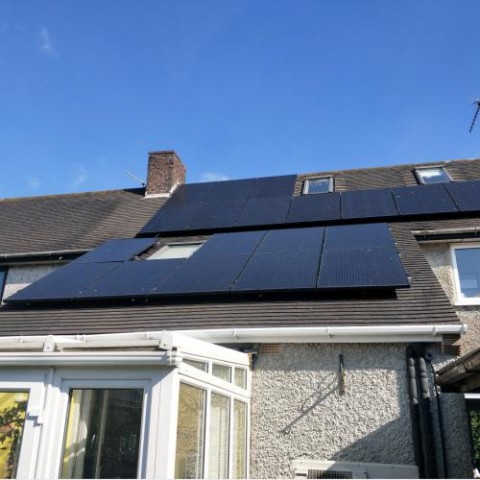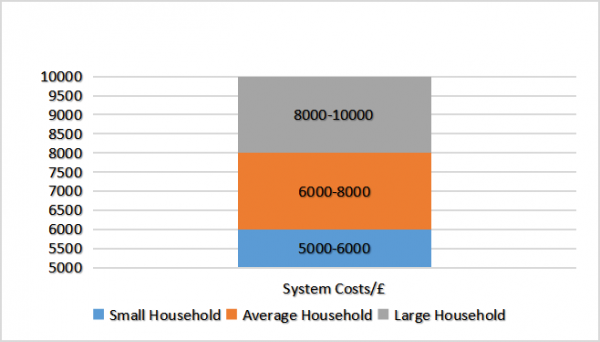The increase in the efficiency and the reduction in costs of solar panel systems have made more and more homeowners choose to install residential solar panel systems to reduce long-term energy costs while minimizing their carbon footprint.
A solar system is inevitable without solar panels, solar inverters, and batteries. About solar inverters and batteries, there is some related recommendation.
1. What is a solar panel?
A solar panel is a device that converts solar radiation into electric energy directly or indirectly by means of photoelectric effect or photochemical effect by absorbing sunlight. Compared with ordinary batteries and rechargeable batteries, solar cells are more energy-saving and environmentally friendly green products, which have the advantages of permanence, cleanliness, and flexibility. Solar panels have a long life, which can be invested once and used for a long time as long as the sun exists.

2. How do solar panels work?
A solar panel is a semiconductor photodiode that converts solar energy directly into electric energy. When the sun shines on the photodiode, it will turn the sun’s light energy into electrical energy to generate an electric current.
3. How efficient is a solar panel?
The main material of most solar panels is “silicon”, generally monocrystalline silicon and polysilicon. The solar panel’s efficiency is related to its material. The efficiency of monocrystalline silicon is more than polysilicon, usually 15% up to 24% and the highest. In practice, these are 4 factors that affect the efficiency of solar panels.
Do people know solar panels are efficient when it snows? More electricity can be produced because the white color of the snow actually reflects sunlight. Of course, the solar panels need to be cleared off first in order for the system to work well, otherwise, it will reduce their efficiency. And there are 4 factors that affected the efficiency of solar panels.
4. How long do solar panels last?
Generally, the service life of a good solar panel can reach 25 years. However, with the influence of the environment, the materials of solar panels will age along with time. Under normal circumstances, the power will be attenuated by 30% after 20 years, and by 70% after 25 years.
5. How many solar panels are needed to power a house?
The number of solar panels depends on people’s electricity consumption to a great extent, also related to sun hours, efficiency, and roof size.
First, people need to estimate current electricity needs, by reviewing electricity bills to determine electricity needs each month of the year.
Then, people need to consider unplanned changes. For example, a man is going to add new appliances to his home or he will buy an electric vehicle. Those are all under consideration.
Last, professionals will provide the best solution based on people electricity needs, the location of home, and the roof’s capacity.
A 1kW solar panel system would require approximately 4 solar panels with a 250W power output for common applications, and a 3kW solar panel system would require approximately 12 solar panels.
6. How much do solar panels cost?
The quantity determines the costs of solar panels, however, people’s home requirements determine the number of photovoltaic panels. In general, the more people’s electricity consumption, the more expensive the solar panel system but the more people save on bills, as the shown figure below. According to the survey, the average solar panel system costs £5,000 to £10,000, as a reference for choosing solar panel systems.

A small house with less than 3 persons using a 3kW solar panel system can sufficiently support their electricity costs, approximately £5,000-£6,000.
An average house with 3 or 4 persons having a 4kW solar panel system can support their electricity costs, about £6,000-£8,000.
A large house with more than 4 persons with a 6kW solar panel system can pay their electricity costs £8,000-£10,000, even more.
Media Contact
Company Name: Luxpower
Email: Send Email
Phone: +86 75585209056
Country: China
Website: https://www.luxpowertek.com/
